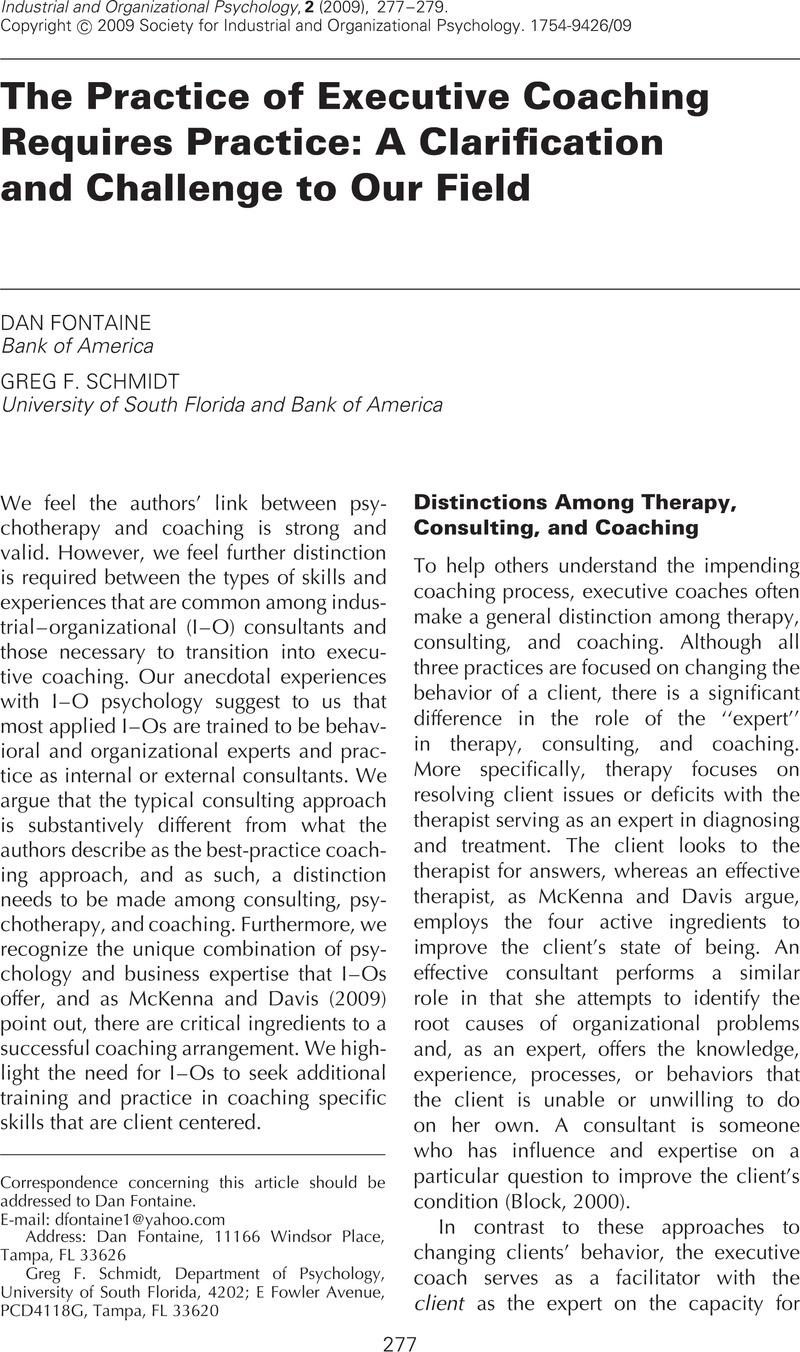Crossref Citations
This article has been cited by the following publications. This list is generated based on data provided by Crossref.
McKenna, D. Douglas
and
Davis, Sandra L.
2009.
What Is the Active Ingredients Equation for Success in Executive Coaching?.
Industrial and Organizational Psychology,
Vol. 2,
Issue. 3,
p.
297.
De Klerk, Jeremias J.
2016.
Coaching Psychology: Meta-theoretical perspectives and applications in multicultural contexts.
p.
97.



